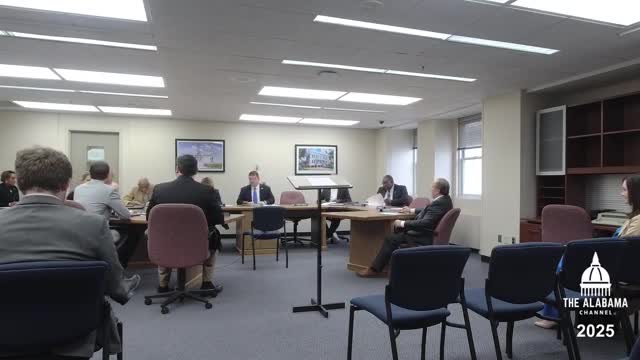House committee gives favorable report to bill changing timing for candidates' financial disclosures
Get AI-powered insights, summaries, and transcripts
Subscribe
Summary
The House Ethics and Campaign Finance Committee gave a favorable report to HB250, which revises when candidates must file statements of economic interest and clarifies related campaign-finance filing triggers; committee members raised questions about how local qualifying and committee formation affect the timing.
At a meeting of the House Ethics and Campaign Finance Committee, members voted to give a favorable report to HB250, a bill that adjusts when candidates must file statements of economic interest and allows proof of an already-filed statement to satisfy re-filing requirements.
Representative Underwood, who presented the bill, said the measure aims to simplify the timing for those disclosures. "Clarity to candidate file is a statement of economic interest," Underwood said, summarizing the change. He told the committee that party-affiliated candidates would be required to file their statement within five days of the deadline to qualify and that independent candidates would have five days after the primary to file, with an option to submit proof that a current statement has already been filed so the candidate need not refile.
The bill prompted questions from committee members about what event triggers the five-day window. Representative Mitchell and others noted differing local practices: some clerks treat qualification as the act of filing qualifying papers with the clerk, while others consider the formation of a campaign committee the qualifying event. Underwood acknowledged the variation and said the bill targets the filing deadline but that local qualifying processes differ.
Members also discussed how the campaign-finance reporting threshold interacts with statements of economic interest. A committee member noted that raising or spending $1,000 triggers campaign-finance filings under the FCPA referenced in the meeting, but that this fundraising threshold does not automatically require an immediate statement of economic interest. "Once you hit either raise or spend a thousand dollars total, then you have to do your FCPA," one member said. "But at that point, you don't have to do a statement of economic interest," Underwood responded.
The committee heard a staff briefing about a large comparative report on the state's ethics rules. The Legislative Services Agency provided a 264-page review comparing Alabama law with other states and offering recommendations. An LSA staffer suggested that lawmakers "go look at the recommendations at the end" and then consult the relevant sections for background, noting the report includes constitutional analysis, American Law Institute principles, and national survey material.
After discussion, Representative Travis moved to report HB250 favorably; Representative England seconded the motion. The committee approved the motion by voice vote; the clerk recorded that "ayes have it" and the bill received a favorable report. The committee meeting was then adjourned.
